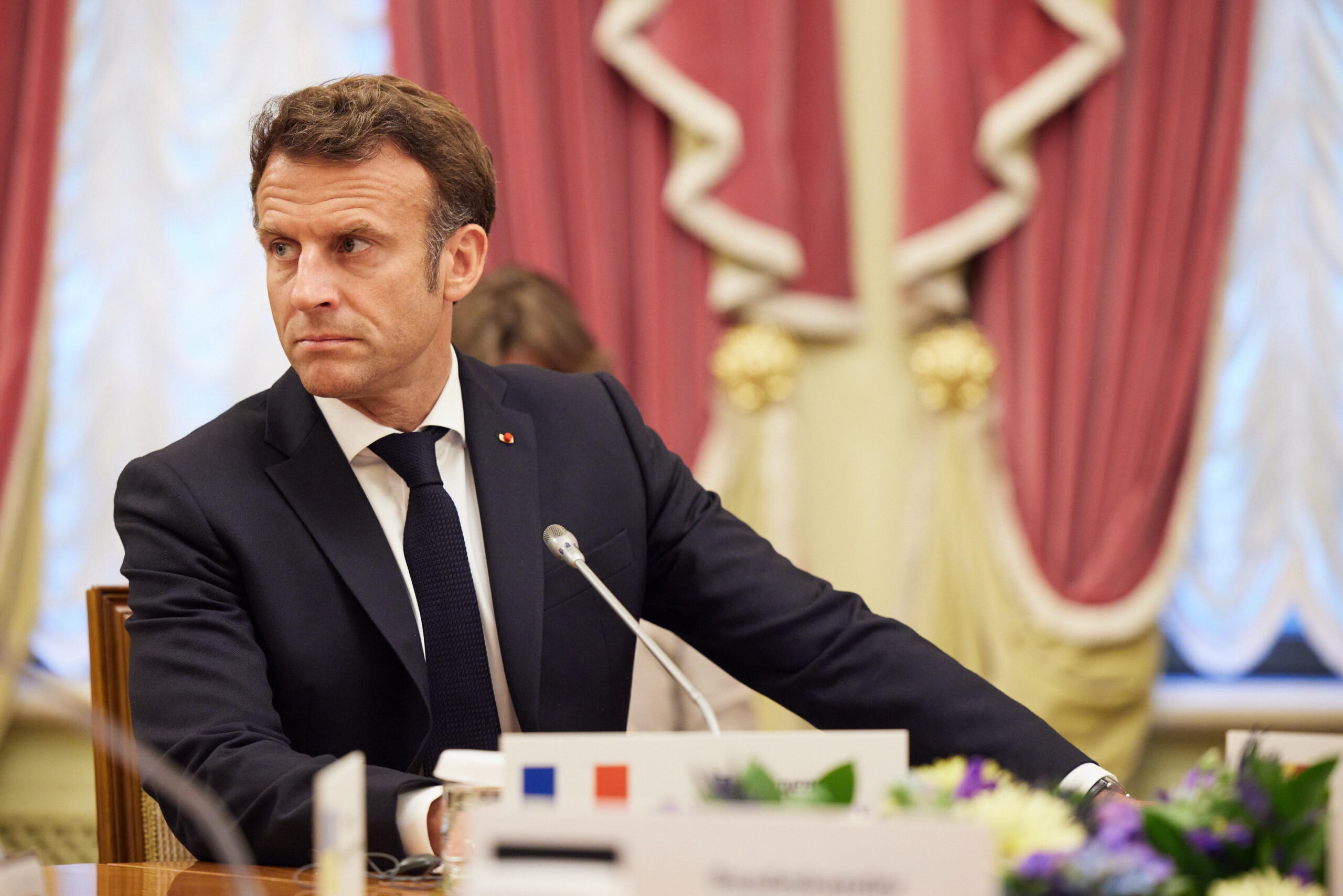Economy
Macron’s Paris summit seeks new life for global finance agenda

French President Emmanuel Macron hosts a summit on Thursday and Friday to pin down a roadmap for easing the debt burdens of low-income countries while freeing up more funds for climate financing.
The summit brings dozens of leaders together in the French capital to forge a top-level consensus on how to progress a number of initiatives currently struggling in bodies like the G20, IMF-World Bank and United Nations.
Ranging from debt relief to climate finance, many of the topics on the agenda take up suggestions from a group of developing countries, led by Barbados Prime Minister Mia Mottley, dubbed the ‘Bridgetown Initiative’.
“We are moving to a world – I would call it the Bridgetown system of finance – (that) recognises that we have to massively upscale the public sector and focus that on building resilience and adaptation because it’s hard for that to be funded any other way,” said Avinash Persaud, a special envoy for Mottley on climate finance.
Though binding decisions are not expected, officials involved in the summit’s planning said that some strong commitments should be made about financing poor countries.
Nearly eighty years after the Bretton Woods Agreement created the World Bank and International Monetary Fund (IMF), leaders aim to squeeze more financing from multilateral lenders for the countries that need it most.
In particular, there should be an announcement that a $100 billion target has been met that will be made available through the International Monetary Fund for vulnerable countries, officials said.
The plan, first agreed two years ago at an African finance summit in Paris, calls on wealthy governments to lend unused special drawing rights to the IMF to, in turn, lend to poor countries.
Governments are also looking at ways to allow the World Bank to use leverage to lend more to poor countries without putting its top AAA credit rating a risk.
“We want to go farther and should be able to set targets to put more public money on the table,” a French presidency source said.
RISING INTEREST RATES
Rising global interest rates have left a growing number of low-income countries dependent on IMF funding while the most distressed – Ethiopia, Ghana, Sri Lanka and Zambia – have had little choice but to default.
A G20 ‘common framework’ for debt restructuring has proven painfully slow with western officials blaming China – now a major creditor after years of heavy lending – of dragging its feet.
A source close to the Paris Club creditor nations said on Monday that the governments Zambia owes money to aim to make a debt restructuring proposal in time for the summit in what is widely seen as a test case for the much-criticised G20 restructuring framework.
On top of interest rate stress, developing and emerging market countries are also struggling to secure the $1 trillion economists say they need by 2030 to finance carbon emission cuts, boost climate resilience and deal with damage from climate change.
Persaud said support was also expected for the IMF and other multilateral development banks to offer $100 billion in currency risk guarantees to unlock private investment in poor countries for climate and development initiatives.
Some leaders are expected to lend their weight to long-stalled proposals for a levy on shipping industry emissions ahead of a meeting next month of the International Maritime Organization, officials said.
They said calls are also expected to be made in favour of disaster risk clauses in lending agreements, which allow a country to suspend repayments in the case of a disaster.
Economy
Russian central bank says it needs months to make sure CPI falling before rate cuts -RBC


© Reuters. Russian Central Bank Governor Elvira Nabiullina attends a news conference in Moscow, Russia June 14, 2019. REUTERS/Shamil Zhumatov/File Photo
MOSCOW (Reuters) – Russia’s central bank will need two to three months to make sure that inflation is steadily declining before taking any decision on interest rate cuts, the bank’s governor Elvira Nabiullina told RBC media on Sunday.
The central bank raised its key interest rate by 100 basis points to 16% earlier in December, hiking for the fifth consecutive meeting in response to stubborn inflation, and suggested that its tightening cycle was nearly over.
Nabiullina said it was not yet clear when exactly the regulator would start cutting rates, however.
“We really need to make sure that inflation is steadily decreasing, that these are not one-off factors that can affect the rate of price growth in a particular month,” she said.
Nabiullina said the bank was taking into account a wide range of indicators but primarily those that “characterize the stability of inflation”.
“This will take two or three months or more – it depends on how much the wide range of indicators that characterize sustainable inflation declines,” she said.
The bank will next convene to set its benchmark rate on Feb. 16.
The governor also said the bank should have started monetary policy tightening earlier than in July, when it embarked on the rate-hiking cycle.
Economy
China identifies second set of projects in $140 billion spending plan


© Reuters. FILE PHOTO: Workers walk past an under-construction area with completed office towers in the background, in Shenzhen’s Qianhai new district, Guangdong province, China August 25, 2023. REUTERS/David Kirton/File Photo
SHANGHAI (Reuters) – China’s top planning body said on Saturday it had identified a second batch of public investment projects, including flood control and disaster relief programmes, under a bond issuance and investment plan announced in October to boost the economy.
With the latest tranche, China has now earmarked more than 800 billion yuan of its 1 trillion yuan ($140 billion) in additional government bond issuance in the fourth quarter, as it focuses on fiscal steps to shore up the flagging economy.
The National Development and Reform Commission (NDRC) said in a statement on Saturday it had identified 9,600 projects with planned investment of more than 560 billion yuan.
China’s economy, the world’s second largest, is struggling to regain its footing post-COVID-19 as policymakers grapple with tepid consumer demand, weak exports, falling foreign investment and a deepening real estate crisis.
The 1 trillion yuan in additional bond issuance will widen China’s 2023 budget deficit ratio to around 3.8 percent from 3 percent, the state-run Xinhua news agency has said.
“Construction of the projects will improve China’s flood control system, emergency response mechanism and disaster relief capabilities, and better protect people’s lives and property, so it is very significant,” the NDRC said.
The agency said it will coordinate with other government bodies to make sure that funds are allocated speedily for investment and that high standards of quality are maintained in project construction.
($1 = 7.1315 renminbi)
Economy
Russian central bank says it needs months to make sure CPI falling before rate cuts -RBC


© Reuters. Russian Central Bank Governor Elvira Nabiullina attends a news conference in Moscow, Russia June 14, 2019. REUTERS/Shamil Zhumatov/File Photo
MOSCOW (Reuters) – Russia’s central bank will need two to three months to make sure that inflation is steadily declining before taking any decision on interest rate cuts, the bank’s governor Elvira Nabiullina told RBC media on Sunday.
The central bank raised its key interest rate by 100 basis points to 16% earlier in December, hiking for the fifth consecutive meeting in response to stubborn inflation, and suggested that its tightening cycle was nearly over.
Nabiullina said it was not yet clear when exactly the regulator would start cutting rates, however.
“We really need to make sure that inflation is steadily decreasing, that these are not one-off factors that can affect the rate of price growth in a particular month,” she said.
Nabiullina said the bank was taking into account a wide range of indicators but primarily those that “characterize the stability of inflation”.
“This will take two or three months or more – it depends on how much the wide range of indicators that characterize sustainable inflation declines,” she said.
The bank will next convene to set its benchmark rate on Feb. 16.
The governor also said the bank should have started monetary policy tightening earlier than in July, when it embarked on the rate-hiking cycle.

 Forex3 years ago
Forex3 years agoForex Today: the dollar is gaining strength amid gloomy sentiment at the start of the Fed’s week

 Forex3 years ago
Forex3 years agoUnbiased review of Pocket Option broker

 Forex3 years ago
Forex3 years agoDollar to pound sterling exchange rate today: Pound plummeted to its lowest since 1985

 Forex3 years ago
Forex3 years agoHow is the Australian dollar doing today?

 Cryptocurrency3 years ago
Cryptocurrency3 years agoWhat happened in the crypto market – current events today

 World3 years ago
World3 years agoWhy are modern video games an art form?

 Commodities3 years ago
Commodities3 years agoCopper continues to fall in price on expectations of lower demand in China

 Economy3 years ago
Economy3 years agoCrude oil tankers double in price due to EU anti-Russian sanctions

























